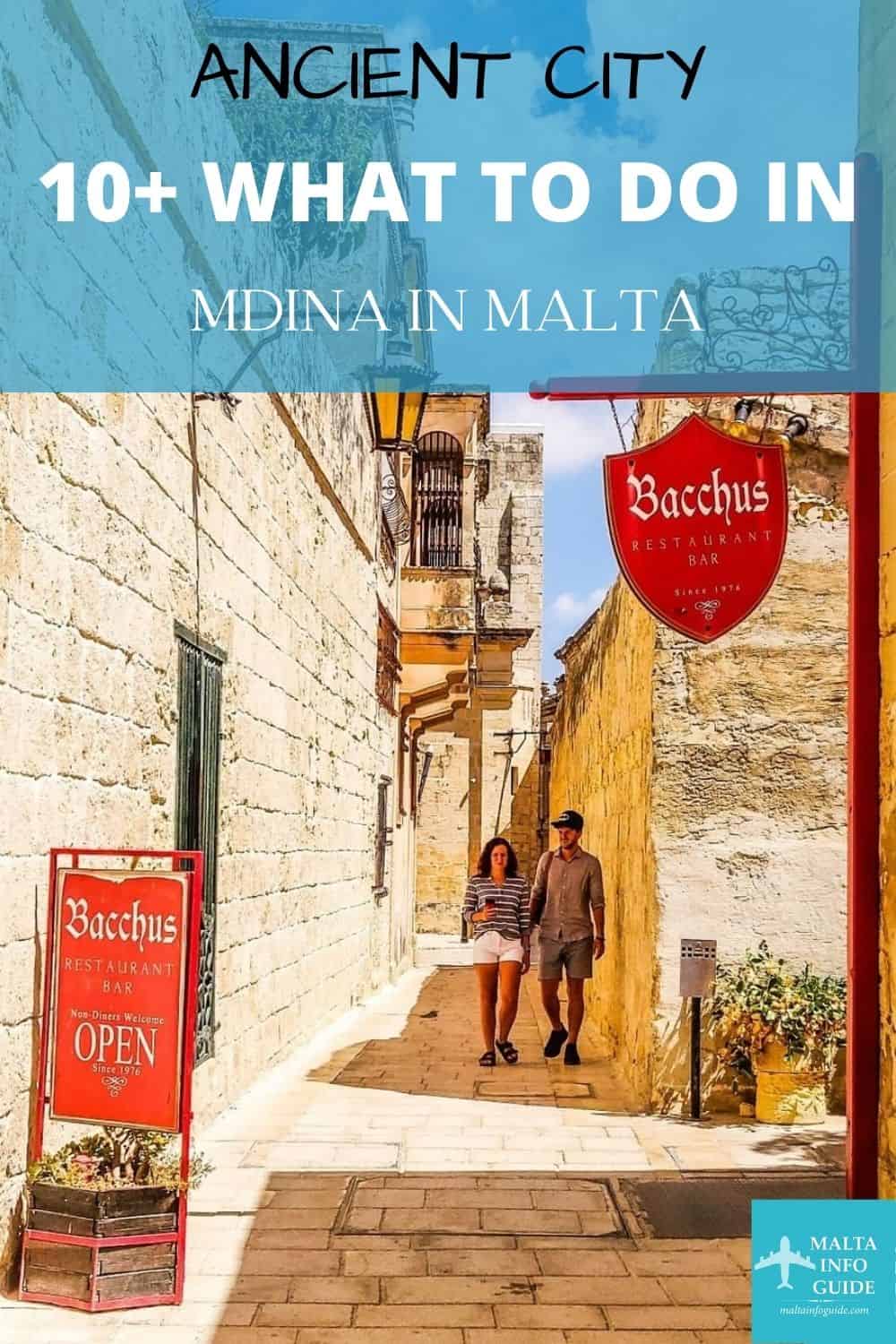- Home
- Top Things to Do
- What to Do in Mdina
what to do in mdina
Our Suggestions Of Places To Visit At The Silent City
What to do in Mdina offers a splendid itinerary that might fill up all your visiting time.
Mdina is a magical place where the modern age seems far away. It is very popular with tourists for day-trip tours apart from the many that visit it everyday. In the evening it is still and quiet apart from the visitors that still visit. With limited vehicles entering the old capital, with dim lit lanterns enchants the visitor every time he goes.
The city lies on a hill overlooking other towns and villages. Mdina is a fortified city with a wide-range of Baroque and medieval architecture along all narrow quiet streets.
We have listed the most popular things we suggest you must to while here.
Summer in Malta – What It’s Really Like in 2025
Curious about Malta in peak summer? ☀️ From local festas and sun-soaked beaches to hidden gems and island vibes, this video dives into it all as seen through the eyes of locals. Subscribe to our YouTube channel for more content like this. (Sound ON 🔊)
1. The Main Gate
What To Do In Mdina
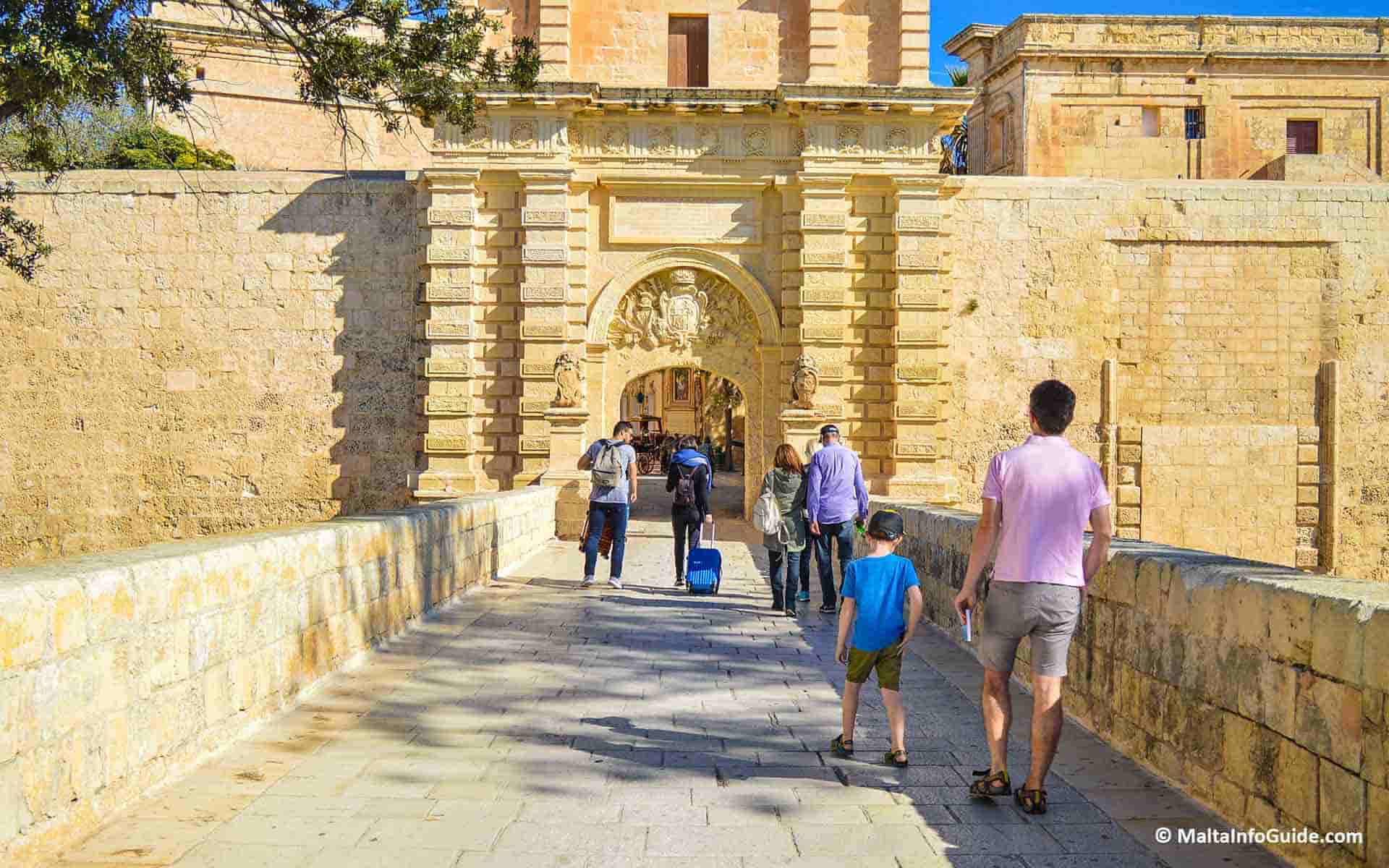
The present main entrance gate leading to Mdina, which we find today, is not the original one. The architect Charles Francois de Mondion designed the new gate in 1724 for the Grand Master of the Order of St. John, Manoel de Vilhena. On entering the gate one can see the coat of arms of this Grand Master showing his outstanding successes during his war.
This entrance gate was used for the filming of the Game of Thrones Season 1 Episode 3 during the summer of 2010.
2. Palazzo Vilhena: The Residence Of The Grand Master
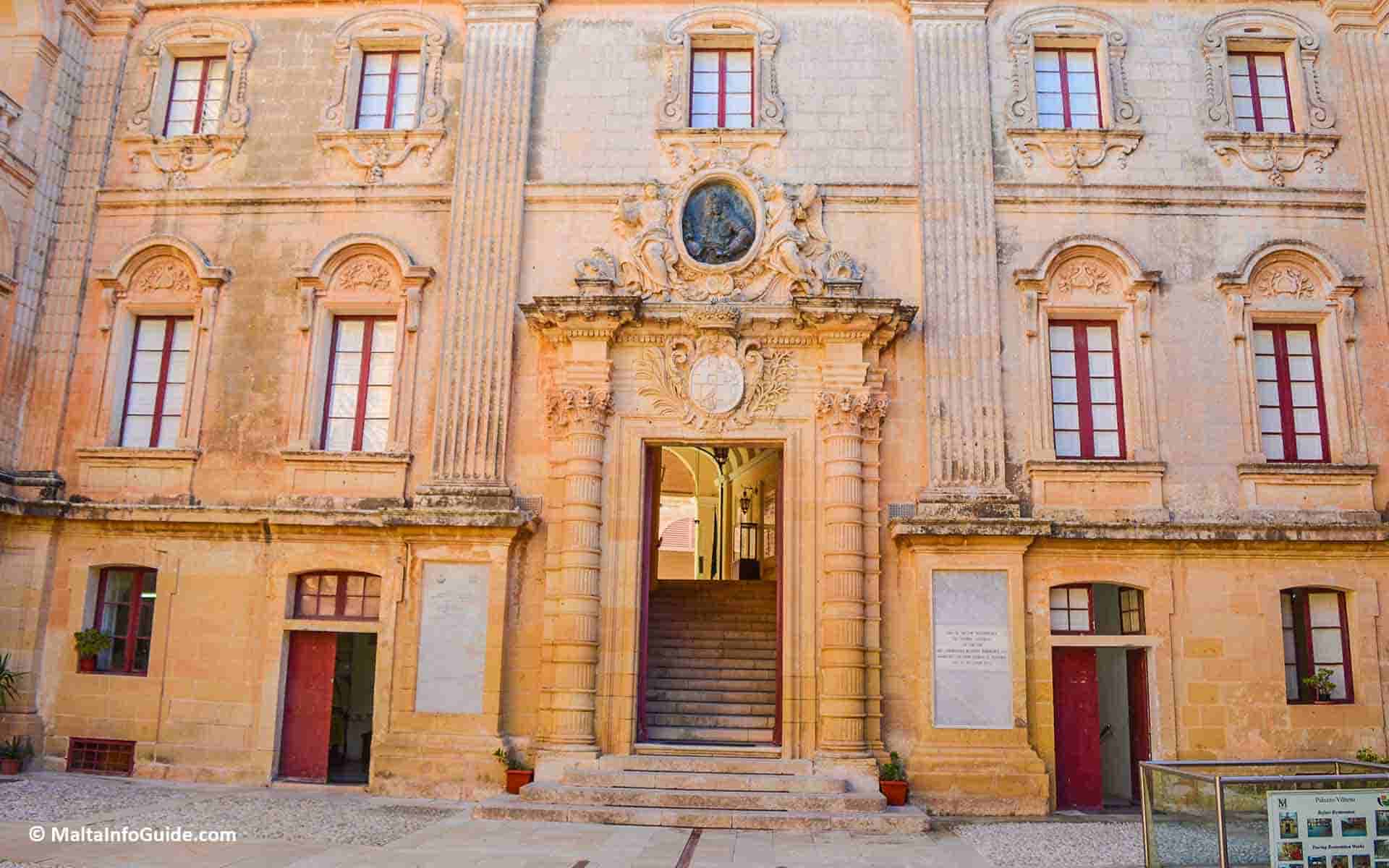
The Grand Master had enlarged the Vilhena palace, and for this purpose he had to shift the position of the gate sideways. It is still visible today from the outside of the fortifications.
It was originally the former Magisterial Palace of Justice but during the tenure of Grand Master Antonio Manoel de Vilhena (1722-1736) he built the existing palace. It was part of his plan to rebuild Mdina after the great earthquake of 1693 which devastated the old medieval capital in the image of the architectural style of the Knight of St. John's.
It is an impressive building that immediately attracts the eyes of all visitors. It is well worth visiting not only the exhibits inside but also the gorgeous building interior. The Magisterial Palace on the side which was incorporated within this enlargement is used by the Mdina Local Council.
Details About Vilhena Palace
- Address: Saint Publius Square, Mdina
3. Palazzo Vilhena: The National History Museum
The National History Museum is this same palace, It is located on the right side, just as you enter the main gate of Mdina.
The Vilhena palace as it is well known, is today the Natural Museum of Natural History opened to the public in 1973 with many Geology and Paleontology collections with Maltese birds, fish, mammals, 10,000 rock and mineral samples. Thousands of exotic shells and insects and a splendid fossil collection. The museum also includes details about Maltese insects, birds, exotic animals and marine fauna.
It was built in the French Baroque style, a beautiful palace designed by Charles François de Mondion. It was the redesigning of the original medieval Universita 'building.
Details About National History Museum
- Address: Saint Publius Square, Mdina
4. The Mdina Dungeons Museum
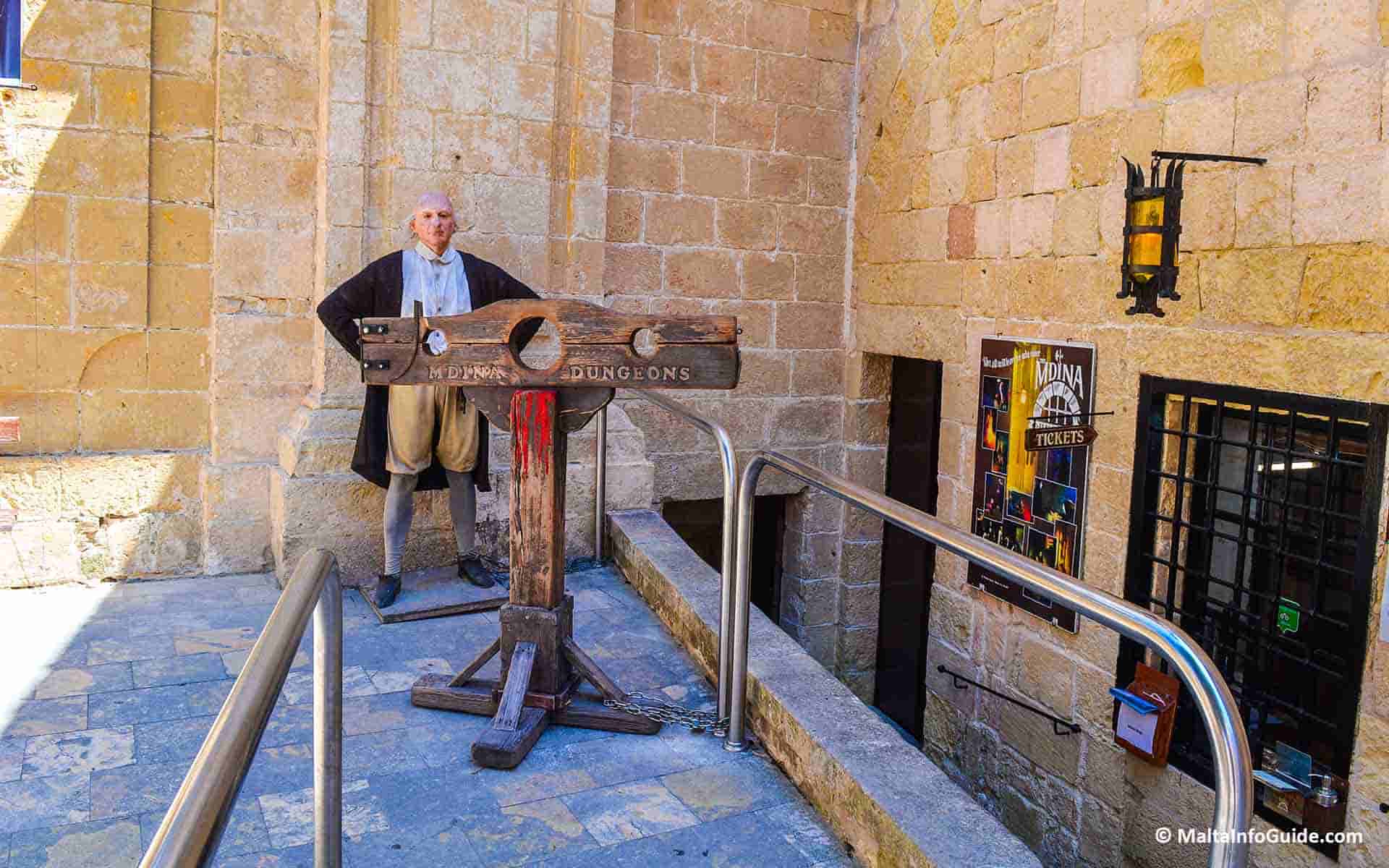
The Mdina Dungeons shows the history of prison life in Mdina. Beneath the Vilhena Palace in the underground passageways that lead to chambers and cells once where prisoners used to be imprisoned.
Entrance is just next to the inner side of the main Mdina Gate. Here you will view the methods and instruments that were used for torture in Malta until the year 1813. Scenes were recreated, showing the brutality of the Maltese prisons during the medieval era. It is a journey that takes you back when justice was very different than today, with a flavor of horror mixed with historical facts.
It takes you back to the darker side of life on these islands, including historical context that helps you become part of its past.
Details About Mdina Dungeons
- Address: Saint Publius Square, Mdina
- Click here for more information
5. St. Paul’s Cathedral
Things To Do In Mdina
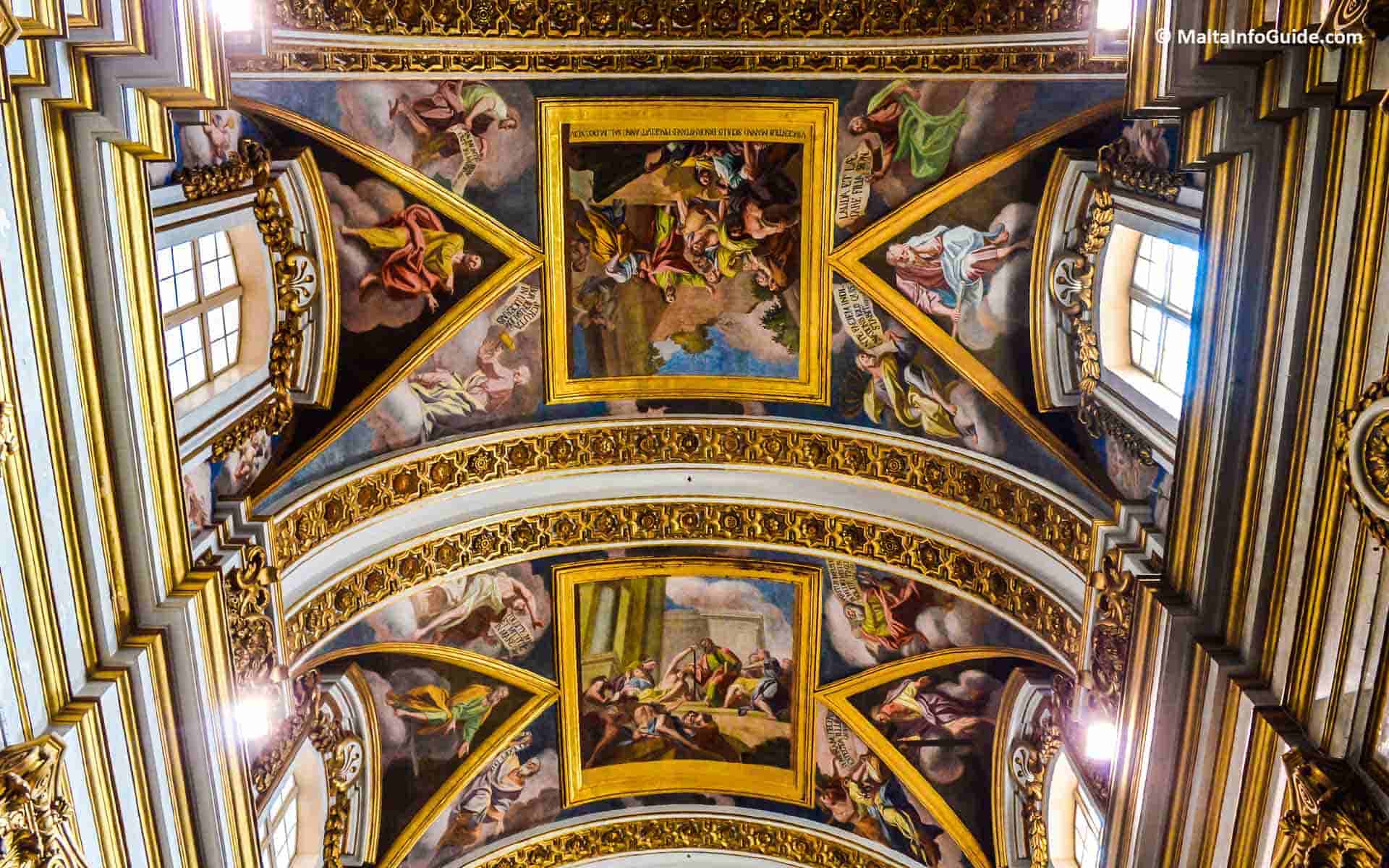
St. Paul's Cathedral, also recognised as Mdina Cathedral is located at the main central square noticeable from many areas of Malta and a clear landmark over the fortification walls.
This elegant baroque cathedral was rebuilt in 1693 after suffering damages by an earthquake. It has wonderful treasures of art across the cathedral. Several famous paintings by Mattia Preti who was a famous Italian Baroque artist who worked in Italy and Malta.
The great artistic decorations within the cathedral attract many tourists to visit this throughout the year. The entrance ticket to the cathedral is valid for the museum.
Details About St. Paul's Cathedral
- Address: 2 Triq San Pawl, Mdina
Opening hours
- Monday to Saturday from 09:30 - 16:30
- Sunday from 15:00 - 17:00
6. Cathedral Museum
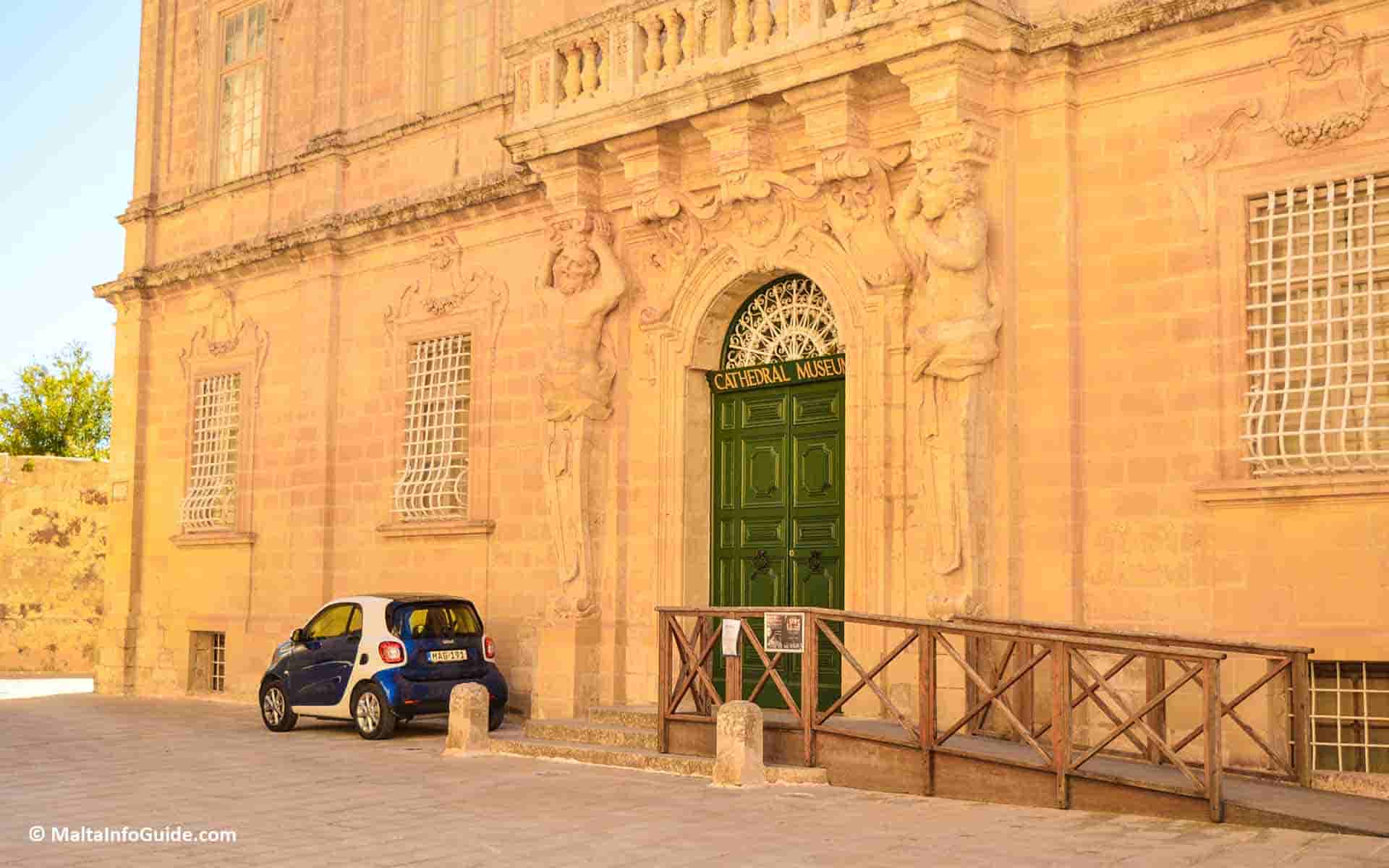
The Cathedral Museum is located on the side of St. Paul's Cathedral. Built in the baroque style between 1733 and 1742 by architect Andrea Belli displaying ecclesiastical objects and Roman antiquities.
It was previously used as a seminary, but today it is open to the public with various collections that are worth visiting apart from the beauty of the building architecture. The collection contains vestments, coins, silverware, religious ornaments, several masterpieces of European paintings. It is notable to mention the engravings by Albrecht Durer.
Many treasures were saved after the heavy earthquake during 1693 in Sicily that had partly destroyed the cathedral. This material is partly displayed at the museum.
The entrance ticket is valid for the museum and cathedral.
Details About Cathedral Museum
- Address: Triq San Pawl, Mdina
- Click here for more information
7. Carmelite Priory Museum
The Carmelite Priory Museum is the first one that has opened its doors on these islands. The Carmelites have restored this 17th century building including the exhibited artefacts to give the visitor an experience of daily priory life and the spiritual side where the tours are conducted by one of the friars.
These convents have incredible beautiful architectural features that we rarely find today.
Here at the priory there is a restaurant open to the public named Al Convento located within the refectory. For many years, friars shared their daily meals apart from their daily community life. This way, the priory keeps itself financially healthy to keep up with their daily life and community commitments.
Details About Carmelite Priory Museum
- Click here for more information
8. Palazzo de Piro: Tools, Trades & Traditions Museum and Café Bistro
A unique combination on the island within Mdina
Nestled beside St. Paul’s Cathedral a 16th century palazzo originally three houses no in one has been gracefully renovated as a museum and café bistro. A success combination that attracts people for breakfast, lunch, dinner, private functions including weddings. With great views over the fortification walls sitting at a table relaxed in this magical place with the perfect setting.
You can visit for a café with a delicious sweet or for a relaxed lunch with the family and pets or for the evening with an enchanting and romantic venue.
An engaging and excite place like Palazzo de Piro is also a museum. A visit to these three large halls where the Mdina Cathedral museum was extended. Collections ranging from 17th to 20th century paintings by local and foreign artists and wooden sculptures. Within this large palazzo there is also a there is also a unique museum of tools, trades and traditions being a private collection of the previous owners who wished that they remain and exhibited within the premises.
Details About Palazzo De Piro
- Address: 3 Triq is-Sur, Mdina
9. Palazzo Falson – The Norman House
Things To Do In Mdina
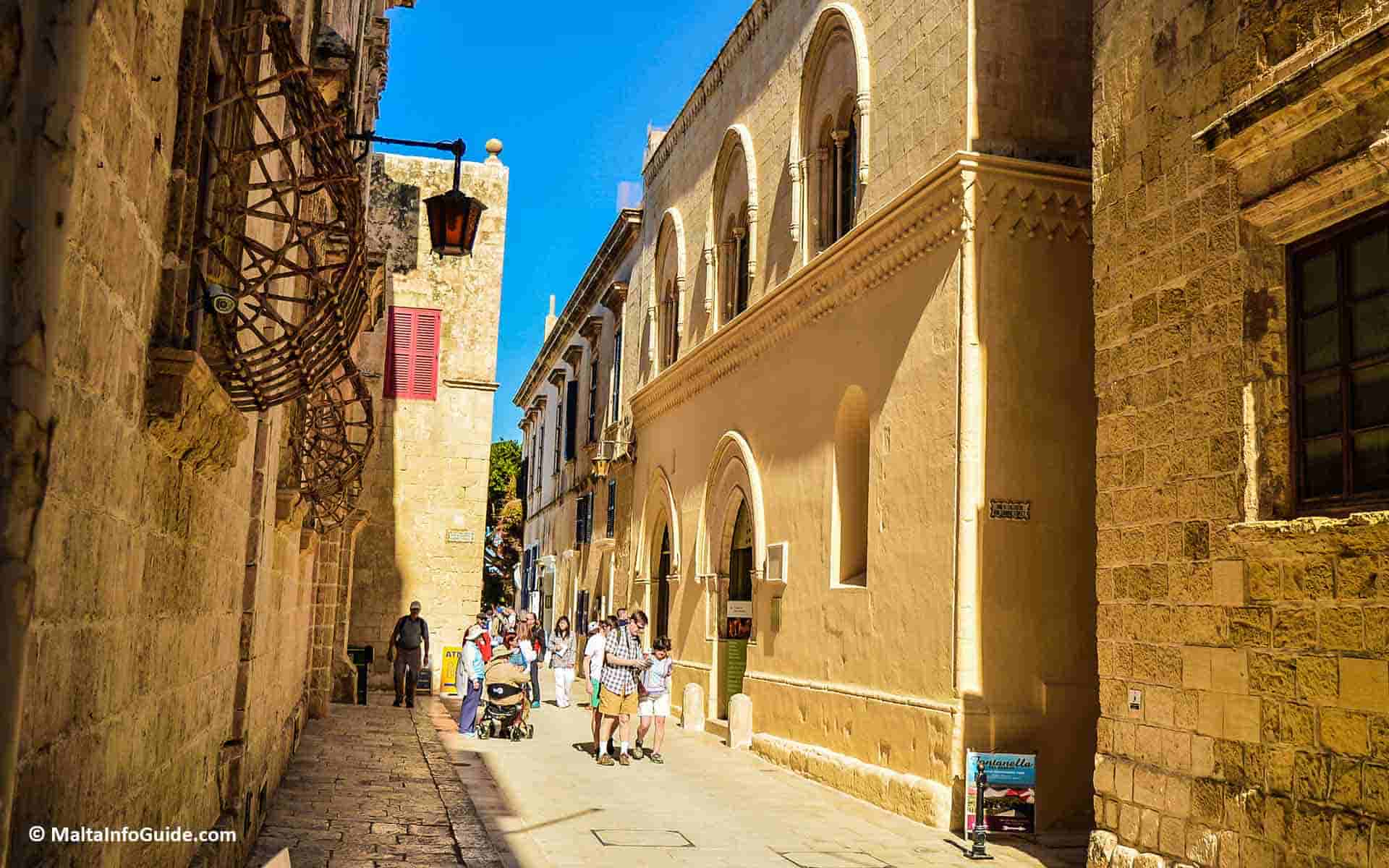
Palazzo Falson is the second oldest building in Mdina. It is also called Norman house due to its characteristic exterior. It is a typical two-storey magnificent medieval palace built in 1495. Various owners built and decorated the building in the Sicilian, Spanish style. The palace contains unique features that were incorporated over time since the 13th century.
It is an unusual among historic palaces, today it is a museum where it is worth visiting. It contains exterior features including splendid collections by Captain Olof Frederick Gollcher that spread over various periods and it gives you an insight about our ancestors' way of life.
Each of the rooms on display is a treasure trove of works of art by Sir Anthony Van Dyck, Nicolas Poussin, Bartolomé Esteban Murillo and Mattia Preti. A café at the premises offers you a pleasant outdoor terrace with stunning views of Malta.
Details About Palazzo Falson
- Address: Villegaignon Street, Mdina
- Opening hours: Temporarily closed and will open on 3rd March 2021
10. The Fortification Walls Of Mdina
The Fortifications of Mdina are defensive walls surrounding the natural plateau on high ground in the center of the island. From here there is a formidable view of the island's principal ports, which was the most ideal location for a fortified capital at the same time overlooking the open Mediterranean Sea for any invaders.
11. The Mdina Experience - Audio-Visual Show
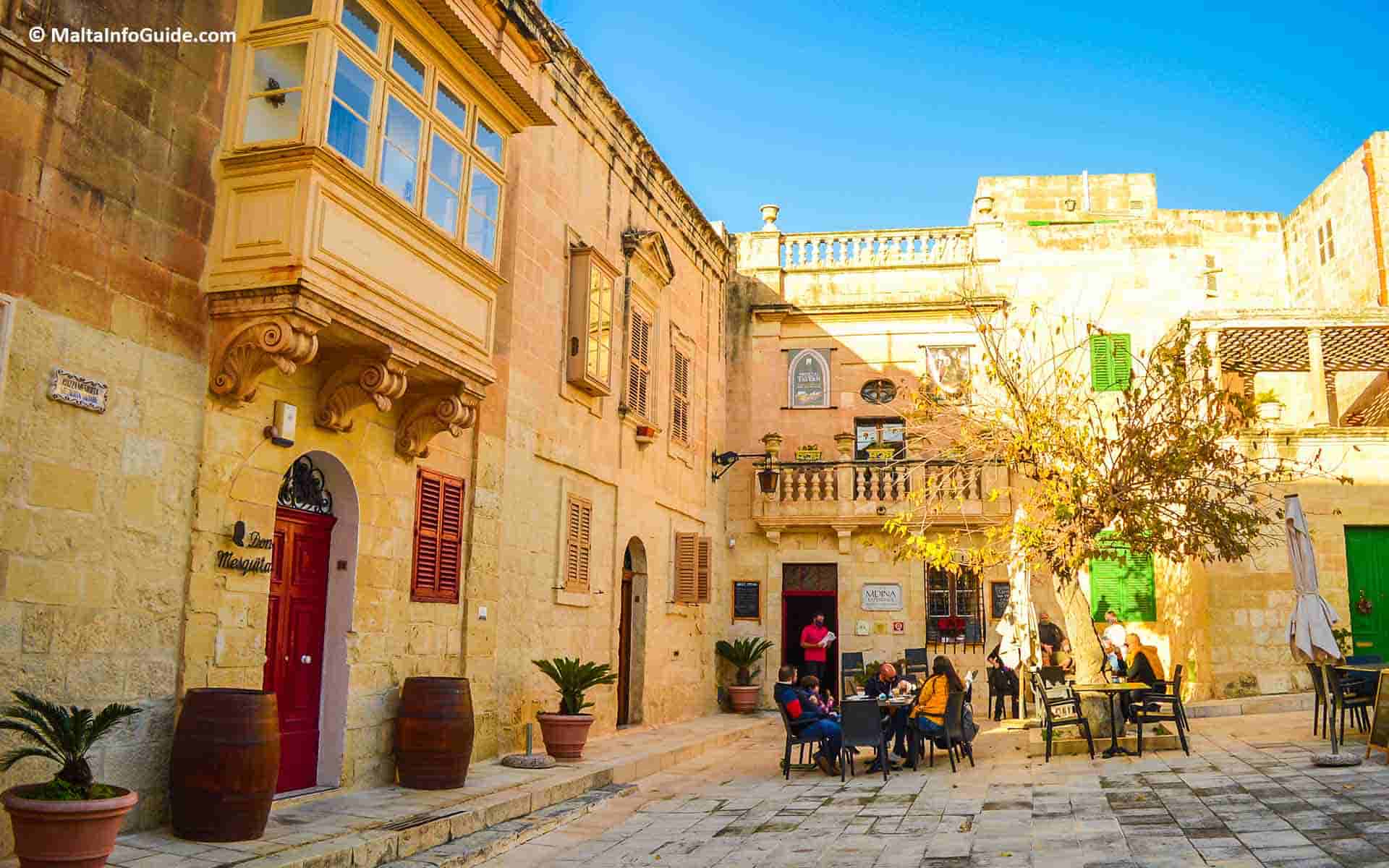
The Mdina Experience is an audio-visual show which enraptures 3000 years of developing a history of a national that saw many conquerors and eventually becoming a Republic led by the Maltese themselves in a 30 minute spectacle.
It is in one of the old buildings at Mesquita Square. A journey back in time which helps you visualize how life was when Mdina was still the capital city of Malta but also along in recent years.
12. Mdina Narrow Streets
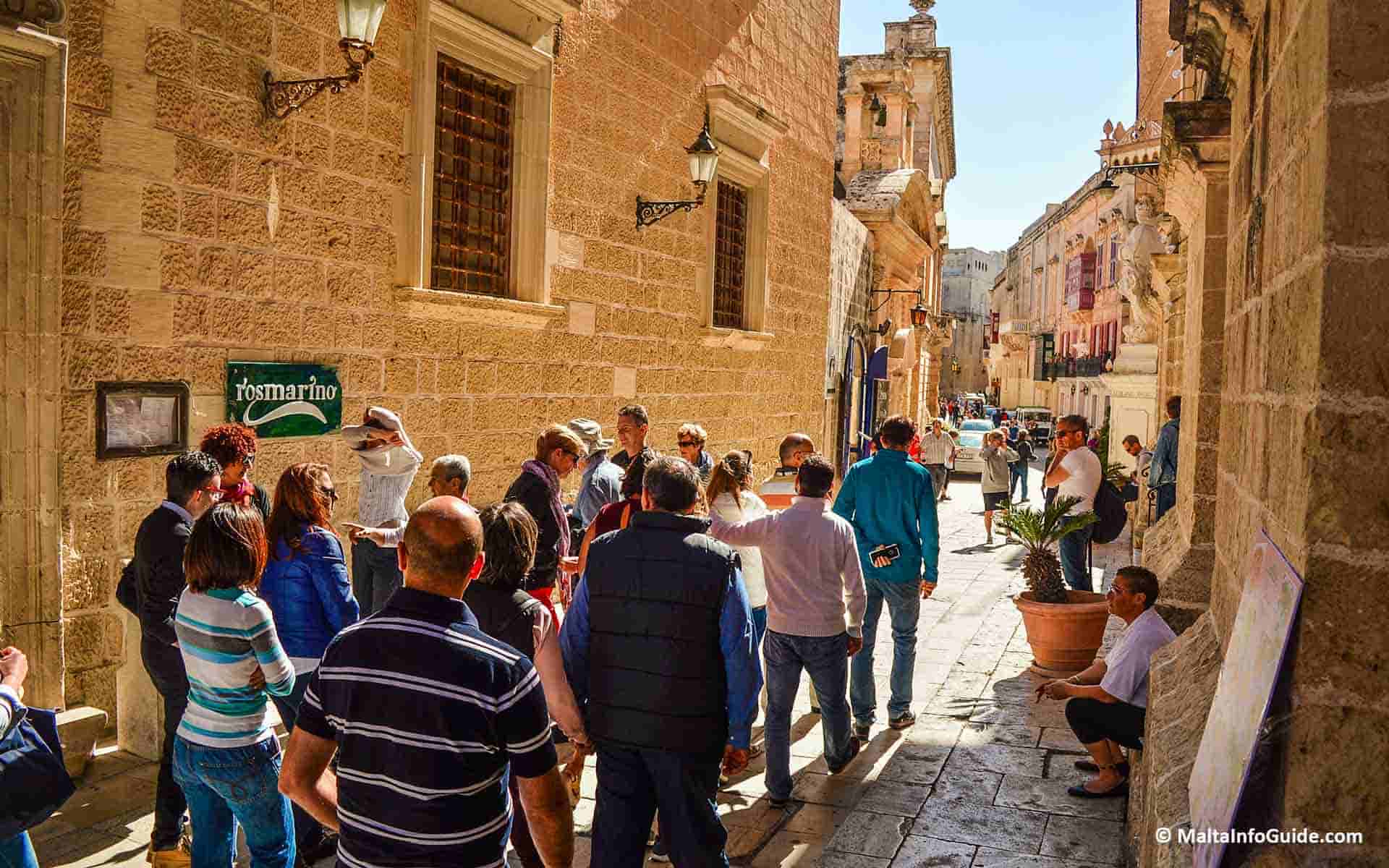
Immerse yourself in a world that has gone by. Roam the narrow and winding streets of the old capital, which are still the lining houses and palaces of the Maltese.
Observe the untouched architecture spreading several eras of conquerors. With only 300 residents, the streets are frequently empty. Only the main central roads are very active with visitors.
13. Mdina Ditch Garden
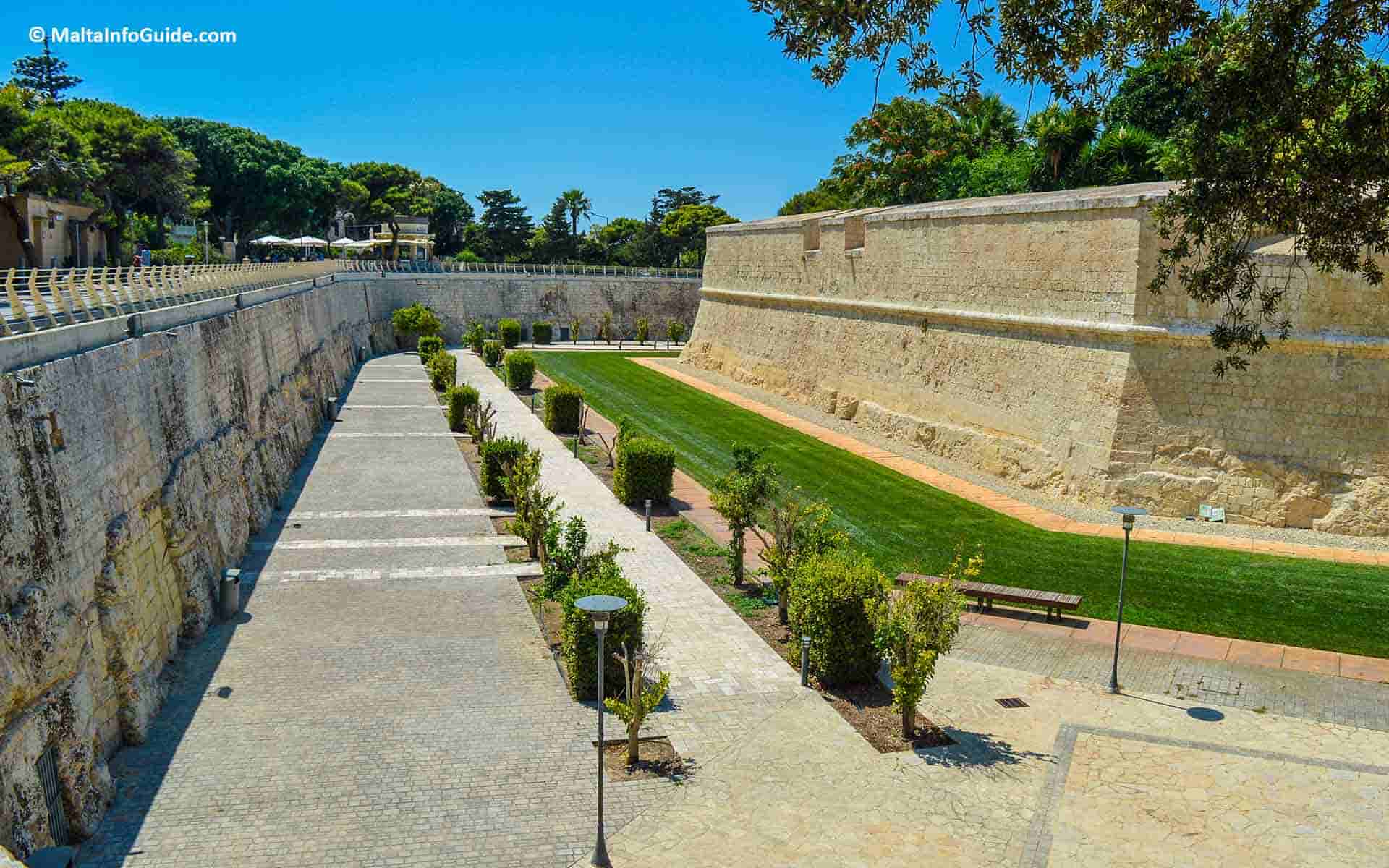
The Mdina Ditch is another area which should be explored. It is a walk outside the fortifications within the wide ditch. It starts from the Ghareqqija gate to the other side beside the Veduta restaurant where you will find a purposely built lift to bring you down and up to the main road from the ditch.
The fortification walls have been restored and the ditch floor has been paved with a mix of green lawn, paving and trees. You have various location where you can sit down and admire the tranquility and setting around you.
14. The Knights of Malta
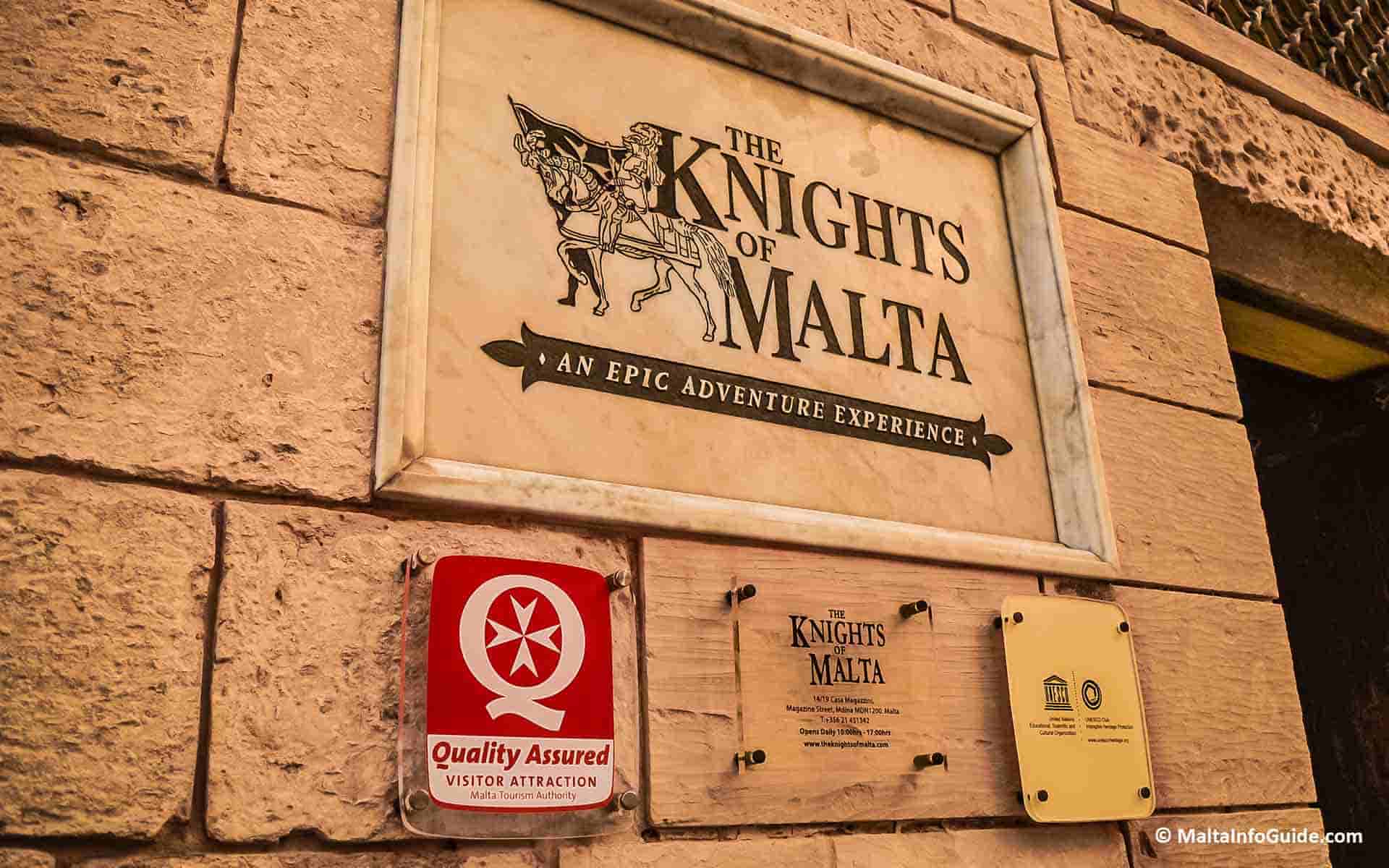
Within the Mdina battlements along the bastion walls of the old capital, a display with 34 tableaux and a 3D audio-visual show gives you a good narration of the 268 years of the Knight of St. John history through full-size figures of knights and grand masters.
Get to know their origins, how they transformed the island into a prosperous island, their great victory over the Turkish army on Maltese soil, and how they were expelled form Malta in 1798. You can follow the audio guide commentaries available in 13 languages.
Details About Knights Of Malta
- Address: Magazine Street, Mdina
- Opening Hours: 10:00 - 17:00
15. Karozzin Rises -Horse Drawn Cab
It is very common that tourists are attracted to rent a short tour around the old city with a horse drawn cab and its driver who is usually the owner. In Maltese it is called Il-karozzin, which was the Maltese traditional mode of transport since antiquity until cars were introduced.
The sound of the wheels on the paved roads reminds you of the past. It is an everyday scene which also attracts many visitors to take photos.
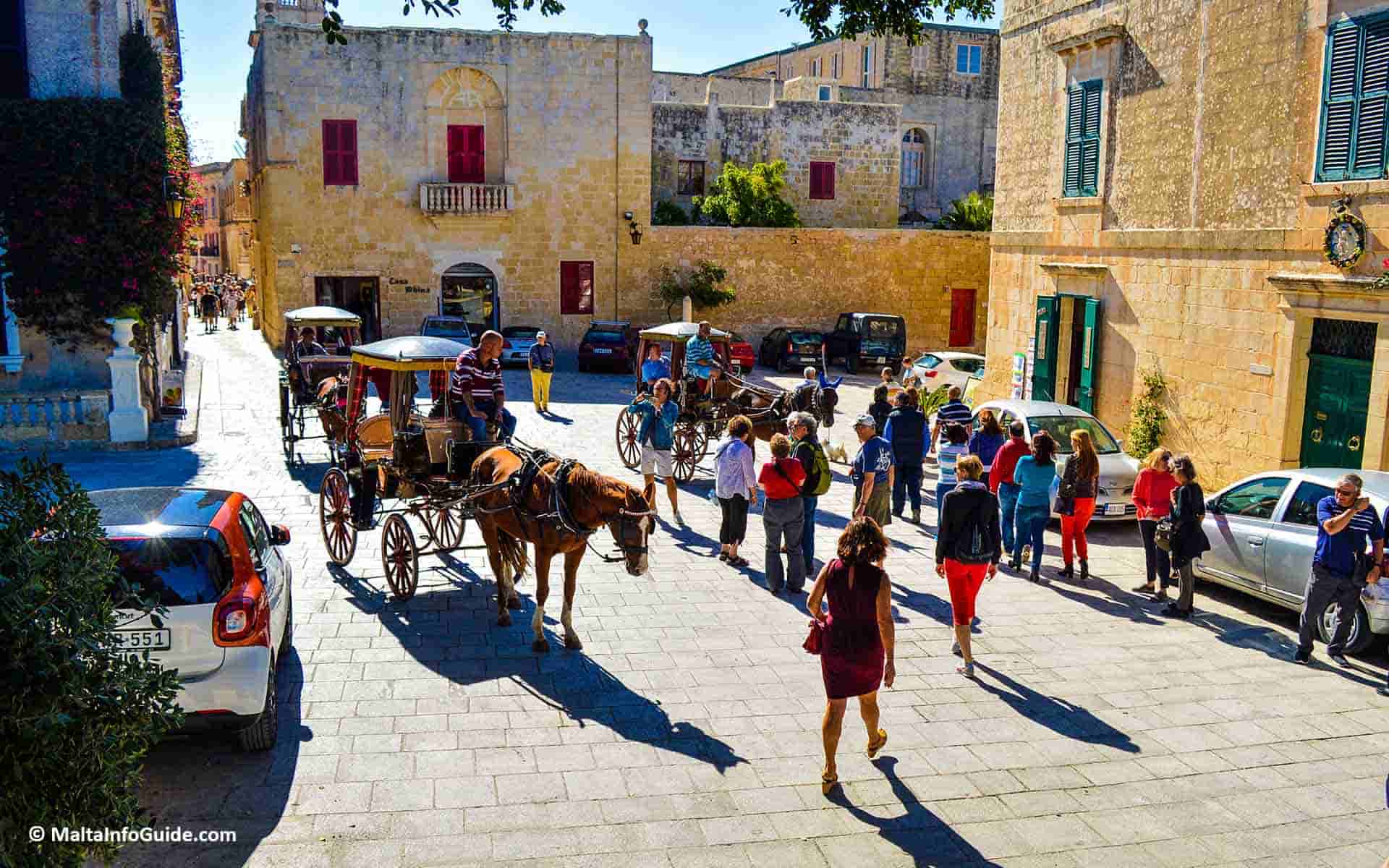
Where You Can Go After Visiting Mdina
The town of Rabat is the second half of Mdina when once during… .. was just one locality. It is a beautiful town with a variety of things you can visit and walk around observing the lifestyle and architecture.
Usually apart from passing cars around it is very quie. It is all surrounded with greenery and various locations can be visited on the outskirst. Various ideas are suggested in our page things to do at Rabat. Have a look and see if you can fit a few during your holiday.
Hop on hop off north tour
Malta sightseeing hop on hop off north tour passes from outside Mdina where there is a stop on the outside of the fortifications with just a one minute walk inside. Then it proceeds to Rabat and to a few of the surrounding areas mentioned in our Rabat page. It is ideal for those who wish to stay in Mdina for a short time.
We invite you to flavor this beautiful silent city of Mdina.
Want To Share This Page On Pinterest? Pin It Here!
Thinking About Renting A Car For Your Holiday?
Renting a car for your holiday gives you so much freedom to explore the islands at your own pace without any possible restrictions. We personally tried Discover Cars and loved their great service and affordable prices.
Get The Best Rates On Your Car Rental Now!
Need to book a hotel for your Malta visit?
Looking for the perfect place to stay? Booking.com is always our go-to website as we know that we will find the right accommodation for the best prices possible. This super-easy platform cannot be recommended enough!
Find Your Hotel Now Using Booking.com!
 By Albert and Benjamin Magro
By Albert and Benjamin Magro